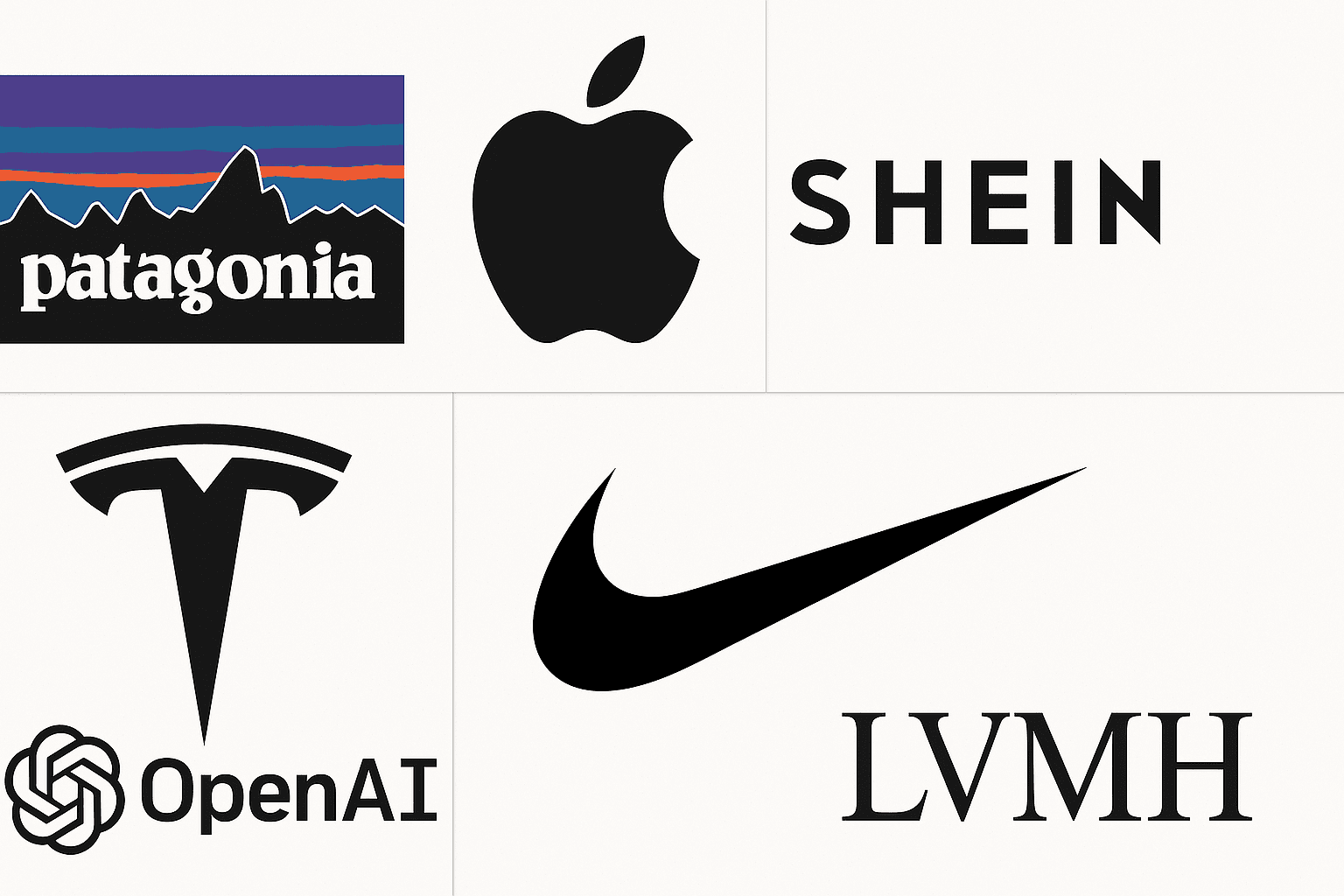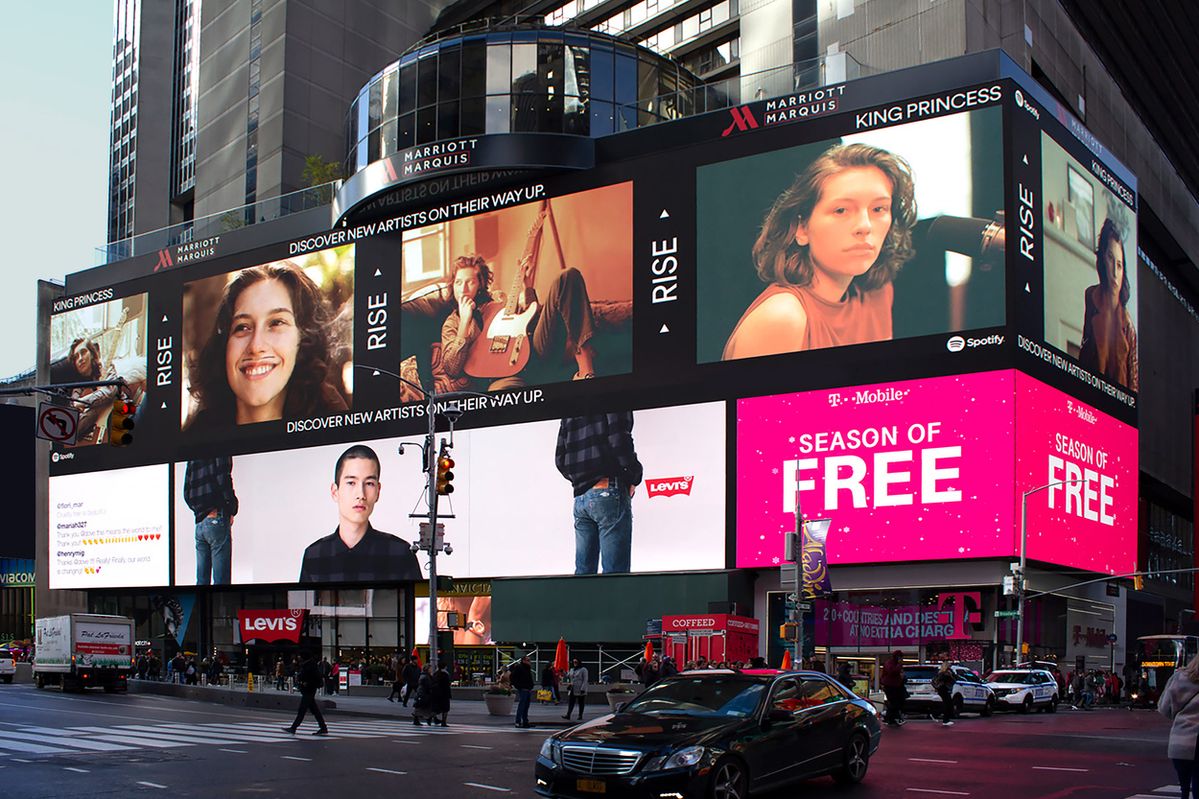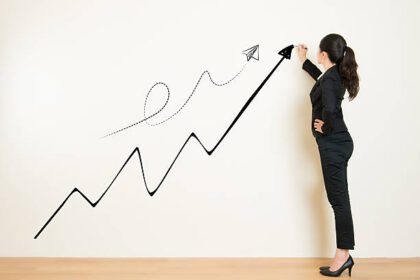In today’s hyper-connected world, brand influence travels faster than ever. A viral campaign, a game-changing product, or a cultural moment can turn a business into a household name almost overnight. But not every brand that trends sustains the buzz only those that combine innovation, storytelling, and authenticity manage to capture global attention consistently.

From sustainable fashion houses to disruptive tech giants, a few names are shaping not only industries but also consumer lifestyles. These brands are the ones people cannot stop talking about in 2025 and each offers a lesson in modern business strategy.
Patagonia: The Gold Standard of Purpose-Driven Business
Patagonia has long been the blueprint for sustainability, but in 2025 its cultural relevance has only deepened. The company’s 2022 decision to transfer ownership to a climate trust remains a defining example of aligning profit with purpose. Its consistent advocacy for environmental activism makes it more than just an outdoor clothing brand, it is a social movement.
Stat to note: According to Deloitte’s 2024 survey, 62% of global consumers prefer brands that take a strong stance on sustainability. Patagonia continues to be the case study proving that purpose and profit can coexist.
Apple: Reinventing Connectivity with Vision Pro
Apple remains the most valuable brand globally, but its Vision Pro mixed-reality headset has ignited a new era of conversation. Positioned not just as a gadget but as a platform for work, entertainment, and human connection, it has redefined what consumers expect from immersive technology.
A Goldman Sachs report projected the AR/VR industry to hit $450 billion by 2030, with Apple positioned to dominate. Much like the iPhone in 2007, Vision Pro signals a paradigm shift and everyone is watching.
Shein: The Controversial Fashion Powerhouse
Few brands polarize global audiences like Shein. Its ultra-fast fashion model draws criticism for environmental and ethical concerns, yet it continues to dominate Gen Z wardrobes. In 2024, Shein surpassed $30 billion in sales, rivaling legacy fashion retailers.
The buzz around Shein is less about admiration and more about debate forcing the fashion industry to grapple with questions of affordability, accessibility, and sustainability.
Tesla: Beyond Cars, Toward Energy Domination
While Tesla’s vehicles continue to make headlines, the brand’s biggest future play lies in renewable energy and battery storage solutions. Elon Musk’s push to position Tesla as an integrated energy company has kept the brand top of mind.
By 2025, Tesla controls over 20% of the global EV market, according to the International Energy Agency. Its Gigafactories not only produce cars but also batteries that may reshape the global energy grid.
Nike: The Athlete’s Cultural Icon
Nike has always been more than a sportswear company; it is a storyteller of ambition and identity. With campaigns highlighting diversity, mental health, and empowerment, the brand consistently sets the tone for cultural conversations.
In 2024, Nike reported $51.2 billion in annual revenue, with digital sales accounting for nearly a quarter of its total. Its digital-first strategy especially through the SNKRS app and collaborations with global icons keeps it at the center of pop culture.
OpenAI: The Face of Artificial Intelligence
In less than a decade, OpenAI has gone from a niche research lab to a household name. With ChatGPT and its successors, the company has reshaped how people interact with technology daily. From classrooms to boardrooms, OpenAI has made artificial intelligence a part of everyday conversation.
PwC estimates that AI could add $15.7 trillion to the global economy by 2030. OpenAI remains the brand most closely associated with this transformation, sparking debates about opportunity, ethics, and the future of work.
LVMH: Luxury’s Global Powerhouse
Moët Hennessy Louis Vuitton (LVMH) continues to set records in the luxury sector. With over 75 iconic brands under its umbrella from Louis Vuitton to Dior the group has mastered balancing heritage with modernity.
In 2023, LVMH became the first European company to surpass $500 billion in market value, solidifying its status as luxury’s global leader. Its collaborations with artists, influencers, and tech platforms keep it relevant to younger audiences while preserving exclusivity.

Conclusion: What These Brands Teach Us
These seven brands prove that influence is no longer just about products. It is about shaping culture, leading conversations, and standing for something bigger than commerce. Patagonia champions sustainability, Apple redefines technology, Shein raises debates, Tesla disrupts energy, Nike drives culture, OpenAI pioneers AI, and LVMH elevates luxury.
The common thread? Relevance is earned through bold moves, authentic storytelling, and the courage to challenge norms. For entrepreneurs and business leaders, these brands offer a blueprint: in 2025, success belongs to those who dare to shape the future.






